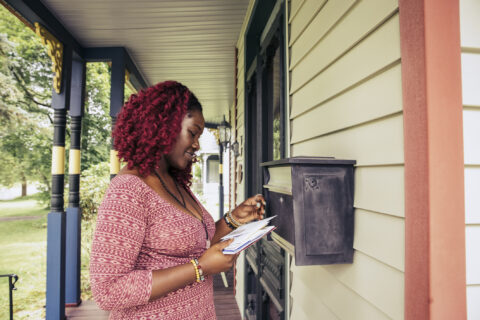Authored by Laura Wood, Vice President, Democracy, Local Policy Lab
Across the country, local governments serve as the frontline of American democracy — not just by engaging residents or hosting town halls, but by carrying out the essential, often invisible work of running our elections. At the center of this work are full-time election administration staff: the professionals who manage voter registration, oversee ballot logistics, recruit and train poll workers and ensure every eligible vote is counted fairly and securely.
In recent years, these professionals have faced unprecedented challenges. From pandemic-era adaptations to navigating a surge in disinformation and political pressure, many election staff have been pushed to the brink. And alarmingly, many have been subjected to harassment, threats and intimidation for simply doing their jobs. As a result, cities across the U.S. are grappling with declining retention, rising vacancies and a loss of institutional knowledge — at a time when trust in elections has never been more crucial.
Why This Matters for Cities
Smooth and secure elections don’t just happen. They require experienced staff, stable systems and leadership that prioritize accessibility and engagement. When election departments are under-resourced or understaffed (PDF), the burden often falls on overworked employees — and ultimately on voters, who may face long lines, unclear information or unnecessary barriers to participation.
This is where municipal leaders have a powerful role to play.
What Local Leaders Can Do
Here are several steps municipal officials can take to support full-time election staff and help ensure elections run smoothly and fairly for all eligible residents (of course, we realize that not all municipalities have the financial resources to invest here, but advocacy to county, state or federal officials can also be important and effective):
1. Invest in Retention and Professional Development
- Advocate for competitive salaries and benefits that reflect the specialized knowledge and stress of the role (PDF).
- Fund ongoing training opportunities to help staff stay current on technology, voter engagement practices and legal requirements.
- Offer mental health and wellness resources to support long-term resilience and prevent burnout. While not specific to election workers, in Wood River, Ill., the city council passed an ordinance to create a mental wellness program for city employees, which included granting one personal day to employees who attend four counseling sessions annually.
2. Publicly Defend and Recognize Election Workers
- Use your platform to publicly affirm the integrity and importance of election staff, especially during times of heightened scrutiny or misinformation.
- Celebrate their work with proclamations, internal recognition or community-facing spotlights — small gestures can go a long way.
- Example: In April 2022, after local elections, Mayor Cavalier Johnson of Milwaukee issued a public statement thanking and affirming the city’s election workers.
3. Strengthen Interdepartmental Collaboration
- Ensure municipal departments and agencies are actively supporting the needs of election departments, not just during voting periods but year-round. Examples could include: legal and policy assistance, IT/technology support (PDF), communications support (PDF) (registration deadlines, etc.).
- Consider creating or enhancing interagency scenario planning teams ahead of high-turnout elections to improve coordination and reduce strain on staff (Local Policy Lab has worked with jurisdictions in Pennsylvania and Wisconsin on these exercises and is happy to support other scenario planning workshops).
4. Create a Culture of Safety and Accountability
- Work with law enforcement and HR departments to create clear protocols for reporting and responding to threats or harassment.
- Provide training for municipal staff and elected officials on how to de-escalate conflict and protect civic spaces from intimidation (non-profits such as Local Policy Lab or others might be able to provide support here).
- Examples:
- In Maricopa County, election officials have recognized the increased stress and threat environment faced by poll workers, and have incorporated de-escalation training in recent years as part of their efforts to protect and support staff.
- In 2024, the Milton, Wis. City Council passed a resolution that commits to supporting and protecting election workers from harassment or threats.
5. Listen and Learn from Your Local Staff
- Hold regular listening sessions with election officials and staff to understand what’s working — and what’s not.
- Ask what support they need most, and make that feedback part of your municipality’s long-term civic engagement strategy.
Democracy Depends on Local Action
When we talk about protecting democracy, we often focus on laws and litigation. But real resilience is built at the local level — in the way municipalities staff, support and sustain the people who make free and fair elections possible.
By investing in election administration professionals, local leaders aren’t just supporting their teams — they’re ensuring that every eligible resident can vote with confidence and ease. It’s one of the most important ways local governments can live up to their democratic promise.








